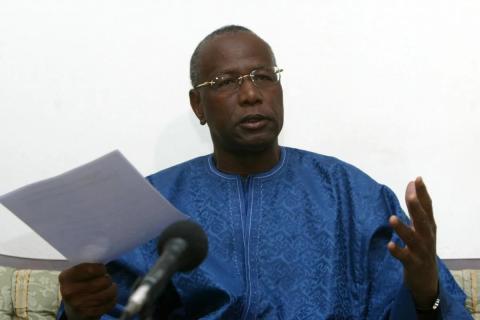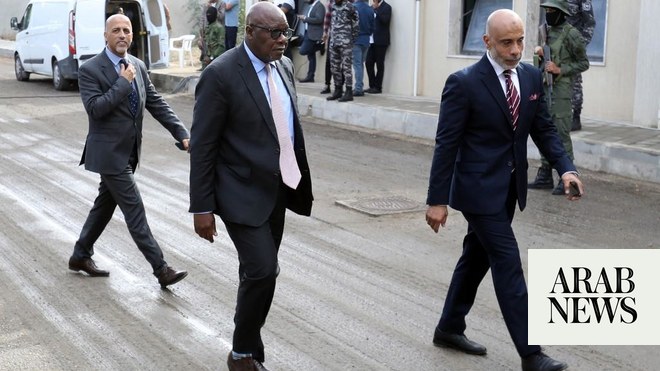
The UN Libya envoy will launch a new initiative to enable elections this year with the formation of a high-level steering committee, he said on Monday, attempting to break a year-long stalemate that has risked renewed conflict.
Addressing the UN Security Council, Abdoulaye Bathily said the panel would bring together representatives of political institutions, other political and tribal leaders, civil society groups, security officials and others.
"Libya's political class is going through a major legitimacy crisis. One could say that most institutions lost their legitimacy years ago," he said, referring to the need for elections.
Libya has had little peace since the 2011 NATO-backed uprising that ousted Moammar al-Gaddafi and it split in 2014 between rival eastern and western factions, with the last major bout of conflict ending in 2020 with a ceasefire.
However, the political process to resolve the conflict has been stalled since the collapse of a scheduled election in December 2021 over disputes about the rules including the eligibility of major candidates.
The eastern-based parliament, the House of Representatives, has meanwhile said the interim Government of National Unity (GNU), installed through a UN-backed process in early 2021, was no longer valid and it set up a rival administration last year.
However, the GNU refused to step down until there are elections and attempts by armed groups aligned with the rival administration to dislodge it from Tripoli by force have failed.
Talks since last year have focused on trying to get the two Libyan legislative bodies that are internationally recognized to agree on constitutional rules that would allow an election to take place.
The House of Representatives, which was elected in 2014 to a four-year term, has unilaterally issued a constitutional amendment but without support from the High State Council, which emerged from an earlier parliament elected in 2012.
Bathily said the House of Representatives' constitutional amendment was controversial in Libya, did not address contentious issues such as candidate eligibility and did not include a timeline for elections.
The last major international attempt to break the deadlock, via a 2020 political forum, led to the formation of the GNU and the roadmap for the December 2021 election, but it was thwarted by internal political disputes.











